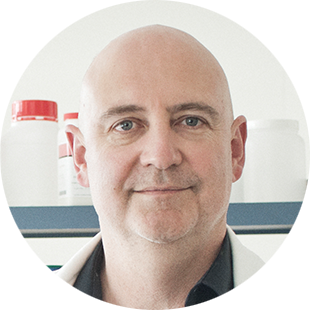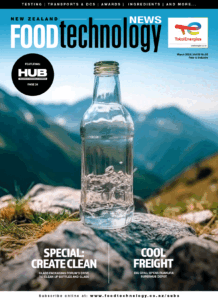 By Professor Richard Newcomb, chief scientist at Plant & Food Research
By Professor Richard Newcomb, chief scientist at Plant & Food Research
Climate change and the global trend towards sustainability are driving scientific research across a spectrum of areas in food, from production through the supply chain to the consumer.
In the last few decades, a myriad of new frameworks and philosophies for food systems have emerged, including Circular and Doughnut economics, regenerative agriculture and zero waste.
Last year, in the midst of the COVID-19 pandemic, Amsterdam formally embraced Doughnut Economics as an alternative to growth economics. Developed by economist Kate Raworth, the Doughnut defines the inside ring as the global minimum standard of living and the outside ring as the earth’s ecological boundary. The goal is to stay within the doughnut. Amsterdam was the first city to commit to the model as a foundation for public policy decisions. At the end of last year, Dunedin City Council committed to a similar thriving cities approach to measuring sustainability.
Circular Economics, which brings together several schools of thought, is another model that’s gaining traction. A circular economy designs systems to prevent waste and pollution from the outset, rather than dealing with it at the end. Products are created to last, able to be repaired and recycled. The use of biological resources is also optimised, with every component being utilised wherever possible.
Regenerative agriculture emerged in the USA where continuous cropping has degraded soils. It aims to increase biodiversity, enrich soil and optimise water use, among other things and is promoted as a way to help to reverse climate change.
Given New Zealand’s ‘2030 target’ of 30% reduction in greenhouse gas emissions over 2005 levels, the way we produce and consume food is set to change. However, models and practices employed in New Zealand will need to fit our social, cultural and environmental context. Many of the sustainability models are already consistent with the Māori world view of Te Taiao (care for the natural world) and principles of kaitiakitanga (guardianship).
These movements are driving a number of trends in scientific research. On-farm research is increasingly focused on ways to reduce all inputs – from water and fertiliser to pesticides and fossil fuels. Much of this research is based on empirical testing.
A different approach is to model the food system as a whole. This offers the advantage of being able to query the model around inputs and impacts to find the optimum balance between reduced input and productivity. Another advantage is that you can test a food system on screen rather than in the field. Modelling supply chains will also help minimise energy use from producer to consumer.
According to the UN around 30% of the world’s food is lost or wasted each year. To help counter this, researchers are looking at how to fully utilise foods. Research is uncovering smart ways to use or add value to side products. There’s work to be done at the consumer end too. The challenge is to develop foods that are less likely to be thrown away, or technologies that can store them for longer, or that help remind you when they should be eaten.
Robust science is needed to guide our food systems to be more sustainable while producing foods that are high in nutritional value. Behaviour change is also essential – whether that involves adopting sustainable farming practices or minimising waste in the home.
Professor Richard Newcomb is chief scientist at Plant & Food Research overseeing all aspects of science quality, strategic science, capability development and collaboration across the institute. He is also an honorary professor of evolutionary biology at the University of Auckland.

































































































